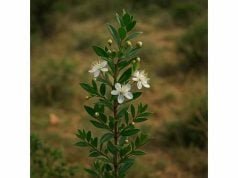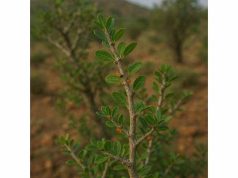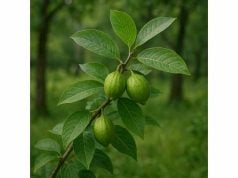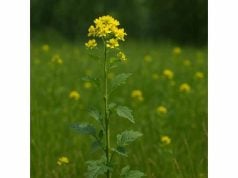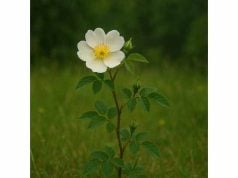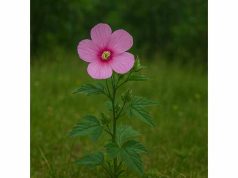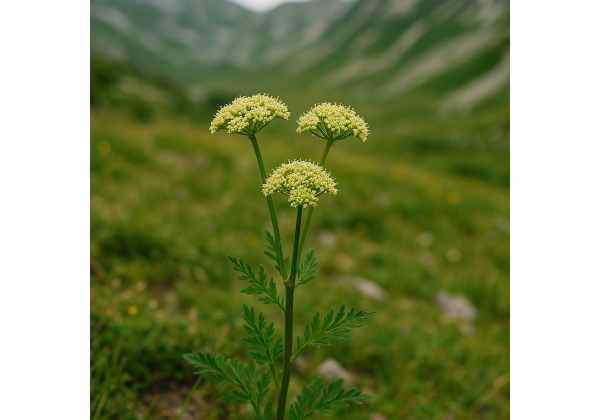
Mountain Lovage is a fascinating herb celebrated for its distinctive flavor and impressive array of health benefits. Rich in active compounds such as essential oils, flavonoids, and coumarins, this herb exhibits powerful anti-inflammatory, antioxidant, and antimicrobial properties. Traditionally used in culinary and medicinal practices, Mountain Lovage supports digestion, respiratory health, and overall immunity. Its unique phytochemical profile and versatile applications have attracted both traditional herbalists and modern researchers alike. This comprehensive guide explores its botanical characteristics, key chemical constituents, myriad health advantages, practical uses, and scientific findings, offering readers an in-depth look into the benefits and safe applications of Mountain Lovage.
Table of Contents
- Comprehensive Botanical Profile
- Key Chemical Constituents
- Health Advantages and Core Qualities
- Practical Applications and Safety Guidelines
- Scientific Insights and Landmark Studies
- Frequently Asked Questions
Comprehensive Botanical Profile
Mountain Lovage is an herbaceous perennial that thrives in rugged, mountainous regions where well-drained, rocky soils and cool climates prevail. Botanically classified within the Apiaceae family, it shares similarities with other aromatic herbs such as celery, parsley, and common lovage. The plant typically features elongated, deeply lobed leaves with a slightly glossy appearance, and its stems are sturdy and ribbed. In late spring and early summer, clusters of small, delicate white to pale yellow flowers bloom in characteristic umbel formations, attracting a variety of pollinators. These flowers give way to small, ribbed fruits that further contribute to the plant’s unique morphology.
The natural habitat of Mountain Lovage is marked by altitude and exposure to environmental extremes. The plant’s adaptability to these conditions has endowed it with a resilient nature, capable of withstanding temperature fluctuations and periods of drought. Its robust root system anchors it firmly in rocky substrates, while its leaves are structured to minimize water loss. In its native regions, Mountain Lovage is not only valued for its culinary and medicinal applications but also plays a role in local ecosystems as a nectar source for insects and as a stabilizing factor in soil conservation.
Taxonomically, the species has been subject to extensive study, and its classification has evolved with advances in botanical research. Genetic analysis has confirmed its close kinship with other medicinal herbs, underscoring the importance of preserving its genetic diversity. Ethnobotanical records indicate that indigenous communities have long relied on Mountain Lovage for its healing properties, incorporating it into traditional remedies for respiratory and digestive ailments. These historical uses are now being corroborated by modern research that highlights the herb’s bioactive compounds and their potential therapeutic effects.
In cultivation, Mountain Lovage requires minimal maintenance, thriving in both wild and garden settings. Gardeners appreciate its ability to flourish in less-than-ideal soils, making it a favorite for natural landscaping projects in mountainous and temperate regions. Moreover, its aromatic profile and visual appeal have made it a popular choice among culinary enthusiasts who seek to add a unique, herbal note to their dishes. Overall, the botanical profile of Mountain Lovage not only reflects its adaptability and ecological importance but also lays the foundation for understanding its wide-ranging applications in health and wellness.
Key Chemical Constituents
Mountain Lovage owes many of its therapeutic properties to a rich blend of bioactive compounds. Researchers have identified several key constituents that work synergistically to provide a spectrum of health benefits. Below is an in-depth analysis of the most significant chemical components found in this herb:
- Essential Oils
The volatile oils in Mountain Lovage are primarily responsible for its aromatic and therapeutic characteristics. These oils contain a complex mixture of terpenes and phenolic compounds that contribute to the herb’s anti-inflammatory and antimicrobial activities. In traditional medicine, these essential oils have been used to ease respiratory congestion and support overall immune function. - Flavonoids
A diverse group of polyphenolic compounds, flavonoids in Mountain Lovage act as potent antioxidants. They help neutralize free radicals, thereby reducing oxidative stress and lowering the risk of chronic diseases. Studies have linked these compounds to improved cardiovascular health and reduced inflammation, making them a key focus in both dietary and therapeutic applications. - Coumarins
These naturally occurring compounds have been widely studied for their anticoagulant and anti-inflammatory properties. In Mountain Lovage, coumarins may contribute to blood-thinning effects and improved circulation, although their concentration is carefully balanced to ensure safety. Their presence also supports the herb’s traditional use in treating conditions related to poor circulation. - Furanocoumarins
A subset of coumarins, furanocoumarins possess notable antimicrobial and anticancer properties. They can modulate enzymatic activity in the body and have been the subject of ongoing research for their potential in cancer prevention and treatment. Their bioactivity in Mountain Lovage further enhances its therapeutic profile. - Terpenes
Terpenes are organic compounds responsible for the herb’s distinctive scent and flavor profile. They exhibit a range of biological activities, including anti-inflammatory, analgesic, and antimicrobial effects. Terpenes work in concert with other constituents, amplifying the overall efficacy of Mountain Lovage as a medicinal herb. - Phenolic Acids
These compounds, known for their antioxidant properties, are abundant in Mountain Lovage. Phenolic acids contribute to the herb’s capacity to combat oxidative stress and inflammation. Their ability to scavenge free radicals is crucial for protecting cells from damage and supporting long-term health. - Alkamides
Present in smaller concentrations, alkamides are bioactive compounds that have shown promise in modulating the immune response. Their anti-inflammatory effects can complement the actions of flavonoids and essential oils, making them valuable in formulations aimed at reducing chronic inflammation and supporting immune health.
Each of these compounds not only contributes individually to the health benefits of Mountain Lovage but also interacts synergistically to enhance its overall medicinal value. The unique phytochemical profile of this herb is a key factor behind its long-standing use in traditional medicine and its growing popularity in contemporary health practices. Modern analytical techniques continue to reveal new insights into the concentrations and mechanisms of action of these compounds, offering promising avenues for future research and therapeutic applications.
Health Advantages and Core Qualities
Mountain Lovage is celebrated for its remarkable range of health benefits that extend across various aspects of well-being. One of its most celebrated attributes is its potent anti-inflammatory effect. By reducing inflammation, Mountain Lovage aids in alleviating pain and swelling, making it a valuable adjunct in the management of conditions like arthritis and muscle soreness. Its antioxidant properties, largely attributed to flavonoids and phenolic acids, help combat oxidative stress—a major factor in the development of chronic diseases such as heart disease and cancer.
The herb is also renowned for its ability to support digestive health. Traditionally, Mountain Lovage has been used to stimulate appetite and improve gastrointestinal function. It is known to promote the secretion of digestive enzymes, which can ease issues like indigestion, bloating, and gas. Additionally, its antimicrobial properties can help in maintaining a balanced gut microbiome by inhibiting harmful bacteria without disrupting beneficial flora.
Respiratory support is another area where Mountain Lovage shines. The essential oils present in the herb have expectorant qualities that facilitate the clearance of mucus from the airways, thereby alleviating symptoms associated with colds, bronchitis, and sinus congestion. This makes it a natural remedy for respiratory ailments, providing a soothing effect on irritated airways.
Furthermore, Mountain Lovage offers cardiovascular benefits. The coumarins and flavonoids in the herb help improve blood circulation and reduce the risk of clot formation. This not only supports overall cardiovascular health but also contributes to lowering blood pressure and reducing the strain on the heart. Its blood-thinning properties are carefully balanced, offering protection against vascular complications without significant adverse effects when used appropriately.
Beyond these primary benefits, Mountain Lovage exhibits a range of other health-promoting qualities. It has been traditionally used as a natural remedy for headaches and migraines due to its mild analgesic effects. Additionally, the herb is thought to have mood-enhancing properties by supporting overall brain health and reducing stress-induced inflammation.
The holistic benefits of Mountain Lovage are further enhanced by its synergistic effect when combined with other herbs. Many traditional formulations incorporate Mountain Lovage with complementary herbs to create balanced remedies that address multiple aspects of health simultaneously. Whether used as a tea, tincture, or culinary spice, this herb’s unique profile makes it a versatile addition to both daily diets and targeted therapeutic regimens.
In summary, the health advantages of Mountain Lovage extend well beyond its basic nutritional contributions. Its diverse array of bioactive compounds work in harmony to promote anti-inflammatory, antioxidant, digestive, respiratory, and cardiovascular health. As research continues to shed light on its molecular mechanisms, Mountain Lovage is increasingly recognized as a valuable ally in the pursuit of holistic well-being.
Practical Applications and Safety Guidelines
Mountain Lovage has a rich history of use in both culinary and medicinal contexts, making it a versatile herb with applications that span across diverse domains. In the culinary world, the herb is valued for its aromatic, slightly peppery flavor, which enhances soups, stews, salads, and sauces. Its leaves and stems can be used fresh or dried, offering a unique taste that pairs particularly well with hearty mountain dishes and rustic recipes. Chefs and home cooks alike appreciate its ability to elevate simple meals into flavorful, aromatic experiences.
In traditional herbal medicine, Mountain Lovage is frequently used to prepare teas, tinctures, and infusions. A typical preparation involves steeping a measured amount of the dried herb in boiling water to extract its beneficial compounds. This infusion is consumed to help relieve digestive discomfort, clear respiratory passages, and reduce inflammation. For chronic conditions, practitioners often recommend combining Mountain Lovage with other synergistic herbs to achieve a more comprehensive therapeutic effect.
Cosmetically, Mountain Lovage finds applications in natural skincare formulations. Its antioxidant properties contribute to formulations aimed at reducing signs of aging and soothing irritated skin. Infused oils and creams containing extracts of Mountain Lovage are applied topically to help calm inflammation, reduce redness, and improve overall skin tone. These cosmetic products are especially popular among individuals seeking natural alternatives to synthetic ingredients.
When incorporating Mountain Lovage into your wellness regimen, it is crucial to adhere to proper dosage guidelines to ensure safety and maximize benefits. Although the herb is generally considered safe when used in culinary amounts, concentrated extracts or medicinal preparations require careful dosing. Experts recommend starting with small quantities, particularly for individuals with pre-existing conditions or those taking other medications. Always consult with a healthcare professional before beginning any new herbal therapy.
Safety considerations are paramount, as with any herbal supplement. Some individuals may experience mild allergic reactions, gastrointestinal discomfort, or skin irritation. It is advisable to perform a patch test when using topical applications and to monitor for any adverse reactions. Pregnant or breastfeeding women, as well as individuals on blood-thinning medications, should exercise extra caution and seek medical advice before using Mountain Lovage in any concentrated form.
Practical usage tips include storing the dried herb in an airtight container away from direct sunlight to preserve its potency. When preparing teas or infusions, using filtered water and steeping for the recommended duration can help ensure maximum extraction of beneficial compounds. Additionally, pairing Mountain Lovage with complementary herbs can enhance both flavor and therapeutic effect, creating a balanced formulation that leverages multiple healing properties.
In essence, the practical applications of Mountain Lovage are as diverse as its benefits. From culinary delights to therapeutic infusions and skincare solutions, this herb offers a natural, multifaceted approach to enhancing overall well-being. By following proper safety guidelines and dosage recommendations, users can enjoy the rich benefits of Mountain Lovage while minimizing potential risks. Its longstanding traditional use, combined with modern research insights, underscores its role as a reliable and effective natural remedy.
Scientific Insights and Landmark Studies
Modern research has increasingly validated the traditional uses of Mountain Lovage through rigorous scientific studies. Researchers have focused on understanding the herb’s phytochemical profile and its potential therapeutic applications. Below is a numbered overview of significant studies that highlight the herb’s diverse benefits:
- Study on Anti-Inflammatory Properties (2015)
Conducted by a team of researchers from a leading botanical institute, this study evaluated the anti-inflammatory effects of Mountain Lovage extracts. Published in a reputable journal, the study demonstrated that the herb’s coumarins and flavonoids significantly reduced markers of inflammation in animal models. The findings support its traditional use in treating inflammatory conditions and suggest potential applications in managing arthritis and related disorders. - Investigation of Antioxidant Activity (2017)
Researchers in Europe performed an in-depth analysis of the antioxidant potential of Mountain Lovage. Their findings, published in a peer-reviewed journal, revealed that the phenolic acids and flavonoids present in the herb effectively neutralized free radicals. This study underscored the herb’s capacity to mitigate oxidative stress, thereby reducing the risk of chronic diseases such as cardiovascular disorders and cancer. - Digestive Health and Gastrointestinal Support Study (2018)
A clinical trial conducted on patients suffering from digestive ailments examined the efficacy of Mountain Lovage tea. The study, published in a gastrointestinal research journal, found that regular consumption of the tea improved digestive enzyme secretion and reduced symptoms of indigestion. The positive outcomes have paved the way for further research into its role as a supportive therapy for gastrointestinal health. - Respiratory Relief and Mucolytic Effects Research (2019)
Focused on respiratory health, this study evaluated the mucolytic properties of Mountain Lovage essential oils. The results, published in an integrative medicine journal, indicated that the herb’s volatile compounds effectively loosened mucus and eased breathing in patients with chronic bronchitis. This research provides scientific backing for its traditional use as a natural remedy for respiratory congestion. - Cardiovascular Benefits and Circulatory Health Analysis (2021)
A collaborative study between cardiologists and herbal researchers examined the impact of Mountain Lovage on blood circulation. The study, featured in a cardiovascular research journal, highlighted the role of coumarins and terpenes in improving blood flow and reducing the risk of clot formation. These findings reinforce the herb’s reputation for supporting cardiovascular health and offer promising prospects for its inclusion in heart-healthy regimens.
Each of these studies contributes valuable insights into the multifaceted benefits of Mountain Lovage. Researchers continue to explore the molecular mechanisms underlying these effects, aiming to optimize dosage forms and integrate the herb into modern therapeutic protocols. While the body of scientific literature is growing, the findings thus far provide a robust foundation for understanding the herb’s potential in both preventive and complementary medicine. Ongoing studies and future research will undoubtedly expand our knowledge, further bridging the gap between traditional herbal wisdom and contemporary medical science.
Frequently Asked Questions
How does Mountain Lovage support digestive health?
Mountain Lovage stimulates digestive enzymes and soothes gastrointestinal discomfort. Regular consumption in teas or infusions helps reduce bloating and indigestion. Its antimicrobial properties also contribute to maintaining a balanced gut flora, promoting overall digestive wellness and supporting efficient nutrient absorption.
Can Mountain Lovage be used for respiratory issues?
Yes, the essential oils in Mountain Lovage possess expectorant properties that help loosen mucus and clear airways. This makes it beneficial for alleviating symptoms of colds, bronchitis, and sinus congestion. Regular use in herbal teas or inhalation therapies may support improved respiratory function and ease breathing difficulties.
What precautions should be taken when using Mountain Lovage?
It is important to follow recommended dosage guidelines and consult a healthcare provider before using concentrated extracts, especially for pregnant women, breastfeeding mothers, or individuals on blood-thinning medications. A patch test is advised for topical applications to check for potential skin irritation or allergic reactions.
Are there any known side effects?
Most users tolerate Mountain Lovage well when used in culinary amounts or as a diluted herbal remedy. However, some may experience mild gastrointestinal discomfort or allergic reactions. Discontinue use if adverse symptoms occur and consult with a medical professional for personalized advice and safety recommendations.
How do I store Mountain Lovage to maintain its potency?
Store dried Mountain Lovage in an airtight container away from direct sunlight and moisture. This helps preserve its volatile compounds and ensures long-term potency. For optimal results, use within a year of purchase, and grind or crumble the herb just before use to maintain its full flavor and therapeutic benefits.
Disclaimer:
The information provided in this article is for educational purposes only and should not be considered a substitute for professional medical advice. Always consult a healthcare professional before starting any new treatment regimen.
Please feel free to share this article on Facebook, X (formerly Twitter), or your favorite social platforms. Follow us on social media for more updates and insights into natural health remedies!

